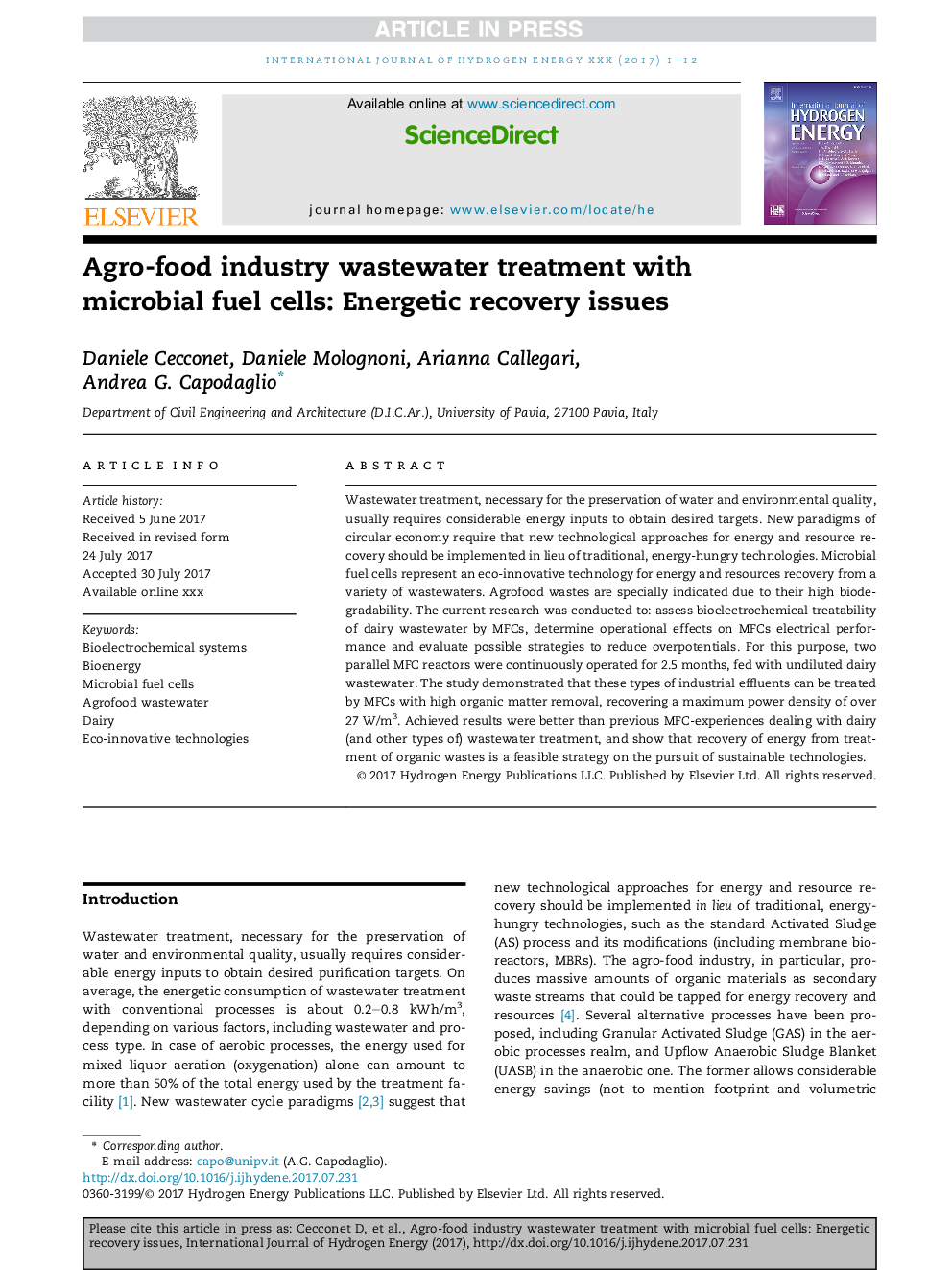| Article ID | Journal | Published Year | Pages | File Type |
|---|---|---|---|---|
| 7708796 | International Journal of Hydrogen Energy | 2018 | 12 Pages |
Abstract
Wastewater treatment, necessary for the preservation of water and environmental quality, usually requires considerable energy inputs to obtain desired targets. New paradigms of circular economy require that new technological approaches for energy and resource recovery should be implemented in lieu of traditional, energy-hungry technologies. Microbial fuel cells represent an eco-innovative technology for energy and resources recovery from a variety of wastewaters. Agrofood wastes are specially indicated due to their high biodegradability. The current research was conducted to: assess bioelectrochemical treatability of dairy wastewater by MFCs, determine operational effects on MFCs electrical performance and evaluate possible strategies to reduce overpotentials. For this purpose, two parallel MFC reactors were continuously operated for 2.5 months, fed with undiluted dairy wastewater. The study demonstrated that these types of industrial effluents can be treated by MFCs with high organic matter removal, recovering a maximum power density of over 27Â W/m3. Achieved results were better than previous MFC-experiences dealing with dairy (and other types of) wastewater treatment, and show that recovery of energy from treatment of organic wastes is a feasible strategy on the pursuit of sustainable technologies.
Related Topics
Physical Sciences and Engineering
Chemistry
Electrochemistry
Authors
Daniele Cecconet, Daniele Molognoni, Arianna Callegari, Andrea G. Capodaglio,
